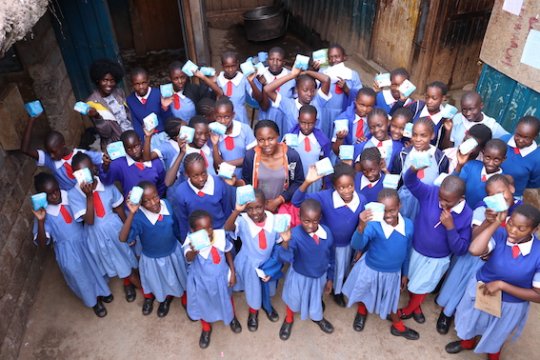We don’t talk about ‘that’

- I didn’t have access to sanitary towels. I took a piece of cloth, put it between my legs and squeezed my muscles. I stood there and the blood slowly trickled down," said Puspa Simkhada in Dominika Kulczyk's shocking documentary about menstrual poverty and taboo in Nepal.
Imagine living life with a cloth between your legs - working in an office, jogging, shopping, cooking or meeting friends for drinks. Your life or your wife's, mother's, daughter's. It's hard, right? There are one billion nine hundred million menstruating people worldwide. Half a billion people cannot fully take care of their hygiene during menstruation because they do not have access to sanitary towels, tampons or clean water - and they live like Puspa. This is what is happening in India, Nepal, many countries in Africa and South America, but also in the USA, Great Britain and even, as recent studies have shown, in Poland.
The worst cases of religious superstition are when menstruating girls are driven out of their homes to so-called menstrual huts, where they can easily fall victim to wildlife and male violence. Most often, however, they are ridiculed, embarrassed and deprived of their dignity and miss out on lessons at school due to having their period - as many as 95% in Ghana - and then stop attending school at all. The Global Partnership for Education calculates that 63 million girls worldwide are out of the school system, many of them because of this.
The menstrual taboo is holding firm. Menstruation is a disease, a sin, shameful, disgusting.
And we all lose out on this.
A girl who thinks about blood flowing from her is losing out, and is unable to concentrate on learning. First she leaves school and then, when it turns out that she is behind, she quits school. She gets married, becomes a mother, her daughters replicate her fate and inherit trauma. She will not find a job or find a low-paid one, she will not realise her passions, she will never be independent. She will live with the feeling that she is worse, she will never fight for herself. She will often become a victim of violence, she will become ill because of a poorer diet, malnutrition. She will have problems with bearing children.
Society also loses out. Instead of an educated woman who will contribute her work to economic growth, society will deal with an excluded individual who will have to be taken care of, treated, have their children looked after, receive financial help.
Girls who study at school are less likely to become casualties of early marriages, that is to say, of legalised paedophilia. More educated women means less infant deaths.
According to the 2015 UN report, in countries where 10% more girls go to school, GDP is growing by 3%. Every extra year in school creates an opportunity to increase women's earnings by 10% to 20%. A country that does not invest in the education of girls loses a billion dollars a year - adds GPE.
A woman loses dignity, a society loses an opportunity for development. This is all because of the 'stupid' sanitary towel.
Can we really afford this?

